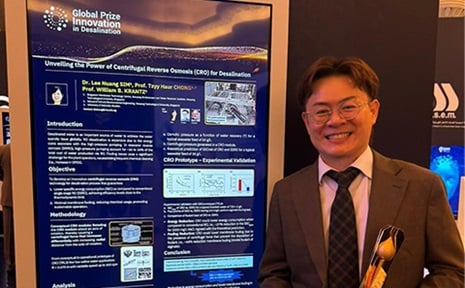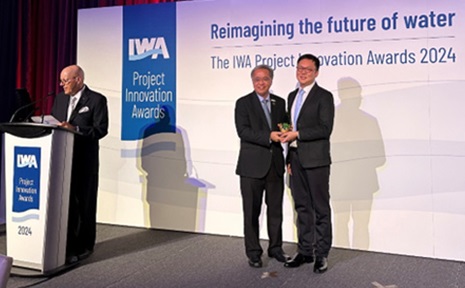NEWRI Partners with LKC Medicine for Bilateral Research on Environmental Health

Recently, I had to honour of a courtesy Professor appointment at the Lee Kong Chian School of Medicine (LKC), NTU. I am truly excited about this appointment and my humble gratitude goes to Distinguished University Professor Joseph Sung, who is both the Dean of LKC and the Senior Vice President of Health and Life Sciences. This appointment is a unique opportunity for me and other NEWRI researchers to interface with the LKC medical school team towards research collaborations that enable more holistic evaluation of environmental exposures and potential health outcomes.
NEWRI has unique analytical and bioanalytical capabilities that enable our team to sensitively and accurately characterize the environmental exposome. Meaning, we have the ability to not only measure specific chemicals, particles, and microbes in air, water, food, soil, and engineered materials, but also state-of-the-art genomics equipment and expertise to determine toxicological implications at a cellular level.

(Above: Particle Aerosol generation, cell culture and exposure system for Air-Liquid Interface (ALI) cultured cells
(photo:NTU NEWRI)
In addition, NEWRI’s work in characterizing environmental exposures is coupled with real world engineering solutions which benefit greatly from the synergy that can be realized by working with LKC and the multitude of experts in human health. Working together with LKC provides NTU with a strategic opportunity to consider the environmental changes that come with continued urbanization and better design engineered systems for water and air pollution abatement, among others.
Currently, NEWRI’s research into the exposome field evaluates the occurrence and potential health effects of wide array of emerging contaminants in diverse environmental compartments such as surface water, drinking water, and urban dust. This includes recently published work identifying novel contaminants derived from polymer/plastic additives and their transformation products that form during water treatment, some of which have been shown to have genotoxic effects in human cells.
Beyond Singapore, which is fortunate to have highly advanced water treatment systems, the joint efforts from LKC and NEWRI can also be applied to underserved communities where people are often exposed to pathogens and chemical contaminants through drinking water. NEWRI Community, which is the philanthropic division of NEWRI, will be able to work with medical experts from LKC to better characterize the risks from environmental exposures as well as better assess the efficacy of engineered solutions proposed.
It is very fortuitous that NTU LKC and NEWRI have found a strong foundation to build a larger collaboration.
I am sure that the research collaboration outcomes will yield high benefits for Singapore and for communities around the world.














/enri-thumbnails/careeropportunities1f0caf1c-a12d-479c-be7c-3c04e085c617.tmb-mega-menu.jpg?Culture=en&sfvrsn=d7261e3b_1)

/cradle-thumbnails/research-capabilities1516d0ba63aa44f0b4ee77a8c05263b2.tmb-mega-menu.jpg?Culture=en&sfvrsn=1bc94f8_1)






